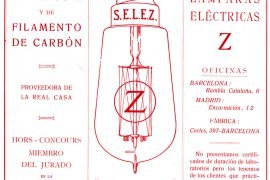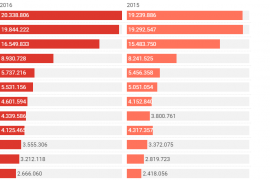[dropcap letter=”M”]
otherhood is a cocktail of feelings that is not always easy to manage”, says Virginia (Amsterdam, mother at 37). “For me, the psychological process was more difficult than the physical one”, explains Saskia (Eindhoven, mother at 31). What Anna remembers most (Balaguer, mother at 29, 31 and 36) of each postpartum is “the hormonal revolution and, consequently, the emotional one: I could not understand why I wanted to cry if everything had gone well and I was holding in my arms a healthy and precious baby”. Is it normal to feel that way? Rosa Alzuria, midwife at the ICS (Institut Català de la Salut) and Assistant Professor of Nursing at the UdL (University of Lleida), confirms it. “It is normal to feel some emotional ambivalence: joy, restlessness, fear (will everything go well?), tiredness, irritability, anxiety… all these constitute the so-called postpartum depression, a habitual and expected emotional process during the puerperium that, little by little, will be fixed”, she explains.
 But the fact that it is normal does not imply that it is easy. “What I remember most of those first weeks is the feeling that the situation was overwhelming. Every day I woke up crying with fatigue thinking that I would not be able to do it well”, recalls Nuria (Lleida, mother at 37). For Anna, “the worst thing is that you get home to meet a fragile person that depends on your care and your partner’s, and that nobody really has taught you anything. You learn while they grow and always with that uncertainty of whether you’re doing it right or not”. Virginia believes that it is urgent to start preparing postpartum in a more emotional and less logistical way. “We have to inform more about the emotional part of the sidereal and vital journey that is going to take place in the life and the body of a woman to bring a child into the world. Nobody gives us guidelines on how to fight the tremendous loneliness, the fears, the responsibility that overwhelms us, the vulnerability, the invasion that we feel, the disappointment, the imbalance of hormones”, she states.
But the fact that it is normal does not imply that it is easy. “What I remember most of those first weeks is the feeling that the situation was overwhelming. Every day I woke up crying with fatigue thinking that I would not be able to do it well”, recalls Nuria (Lleida, mother at 37). For Anna, “the worst thing is that you get home to meet a fragile person that depends on your care and your partner’s, and that nobody really has taught you anything. You learn while they grow and always with that uncertainty of whether you’re doing it right or not”. Virginia believes that it is urgent to start preparing postpartum in a more emotional and less logistical way. “We have to inform more about the emotional part of the sidereal and vital journey that is going to take place in the life and the body of a woman to bring a child into the world. Nobody gives us guidelines on how to fight the tremendous loneliness, the fears, the responsibility that overwhelms us, the vulnerability, the invasion that we feel, the disappointment, the imbalance of hormones”, she states.
WHAT IT IS NOT TOLD
Do women speak clearly enough about the puerperium? “I do not think so”, says midwife Rosa Alzuria. “In fact, I think sometimes women are afraid to talk openly, thinking that I may condition other mothers… The same ones who end up asking: why didn’t you tell me?”. Nuria, for example, would have liked someone to tell her that “life changes forever, you will never be the same person again. It may sound a little childish, but it is something that affected me a lot. I do not know how to explain that feeling of missing the person you were before”. Saskia also does not believe that women talk openly about their postpartum experience. “I think you only talk about it with those friends or acquaintances who have also experienced it”. She adds: “Here in the Netherlands, it is not a taboo, it is considered that every postpartum difficulty is part of having a baby, that it is implicit, so you do not have to go complaining too much about it. It’s the Dutch style”. In contrast, Alex (NY, mother at 37), of British origin, says that many friends tolf her “about the terrible hormonal days that they spent crying during the first weeks and, although I did not experience it personally, I was glad to know that it was a possibility”.
From the point of view of Teresa (Madrid, mother at 36) it is a historical issue because, traditionally, if you say that having a baby is hard “it gives the vision of being a cold mother”. In this sense, Virginia says: “It seems that women are forced to say how fantastic it is to be a mother. The completeness that you feel after having given birth. But bringing a child to the world is very beautiful and also very complex. We must naturalize the process of how the new format is set in your life. I think that, in some way, mothers are still stigmatized with the maternal instinct, or the immediate infatuation, and this is a terrible mistake on the part of society because the attachment is built day by day”. Núria adds: “Even in social networks, I see many comments by people who attack other women who explain that their motherhood was not rosy, labeling them as bad mothers. Every woman expresses herself according to her possibilities”.
According to Anna, another issue that is not well considered is to deal with visits. “During the first weeks, not everyone is prepared to receive people because your body and mind need to rest and adapt to the new situation”. Virginia, for example, remembers “too many people and everyone giving their opinion, and me being totally exhausted. I appreciated returning to normal when I was alone with my daughter”. In this sense, the midwife Rosa Alzuria highlights the role that, according to her, the partner must play. “He is in charge of being attentive to the needs of the mother, both physical and, above all, emotional” and, from her point of view, that includes restricting visits if necessary. “Postpartum is the time to settle and care meticulously and prepare respectfully the space of the new family. It is not time for long visits, or masterclasses indicating the points to improve with phrases like the baby is not being well fed, he/she will hungry, your milk does not feed enough, do not let him/her be that often in your arms, let me tell you since I have raised 10 children before you… messages that, I think, are expressed with affection, but that they basically annoy”, she says. And adds: “it’s about empowering moms”.
BEWARE OF EXPECTATIONS
Alzuria has realized that “postpartum looks a little worse when the expectations that you had do not match the reality you are living”. Alex, for example, says that the time she spent “talking to many friends while they were living their own birth experience” helped her to imagine postpartum “in an objective way”. Nuria, however, believes the “erroneous expectations” played a trick on her. “I am still astonished remembering how I thought I would continue with my life as if nothing had happened, with a perfect child who would not cry or bring problems”, she says. Perspectives on one’s physical appearance can also be a problem. The effects of episiotomy -“my greatest concern was the stitches” (Mireia)-; the surprise produced by the fact that “there was no baby there but still had a 5 months belly” (Mercedes) or the worry about whether the body “will one day resemble what it was before” (Alex) are aspects often neglected socially but, in the self-esteem of the puerpera, they hurt.
The reality is that, although there are as many postpartum as maternities, there is only one thing that all mothers agree on, and it is in pointing at the best of the experience: to get to know the little person that themselves, together with their bodies, had been able to create and bring to the world.
FROM MOTHER TO MOTHER (II)
You’re doing incredibly well: trust your common sense and enjoy the moment without feeling guilty. It may be that one day, or many, you feel tired, overwhelmed, sad… even wanting to leave the baby with someone, for a while. You will stop being a good mother when delegating tasks related to the baby or even related to the house. Anna
It is hard, very hard and it is an emotional smack, but it is also temporary and worthwhile. Mireia
Do not feel bad for feeling bad at a time when everything is supposed to be fantastic and you cannot complain. Ask for help if the new situation overcomes you and try to see through, because everything will be back in place. Virginia
You’re doing it right. Motherhood is intuition. Let yourself be helped. Run away from smart-willed mothers or those whose children -they say- are perfect. In the eyes of your children, you are the best mother. Mercedes
The most important thing is that everything passes, and that over time you no longer miss the person you were before, because you like much more the one you have become. Nuria



















